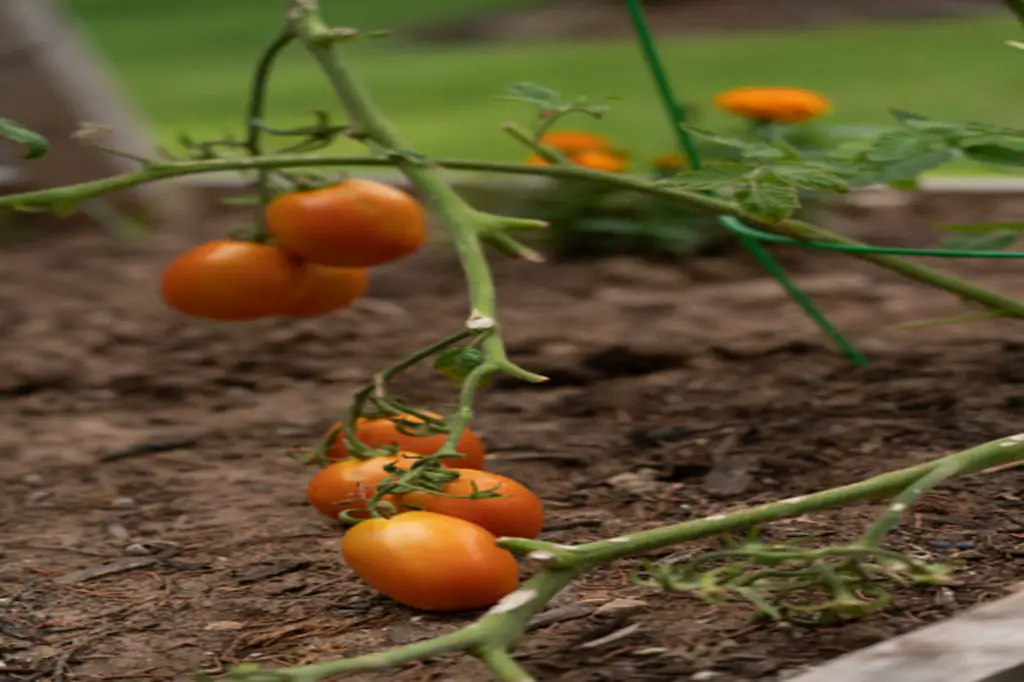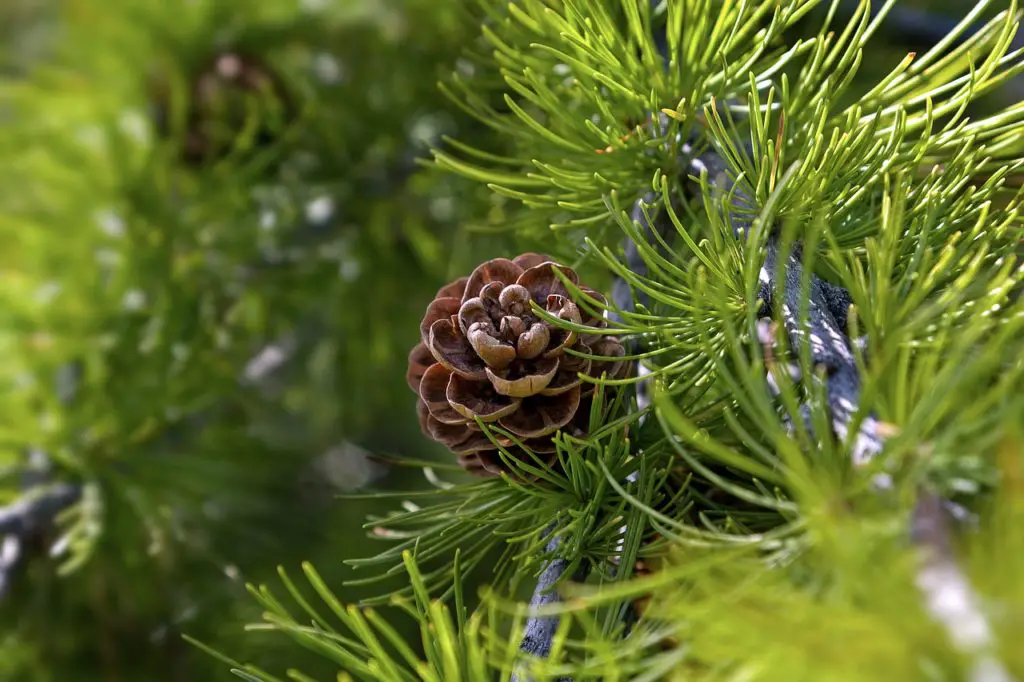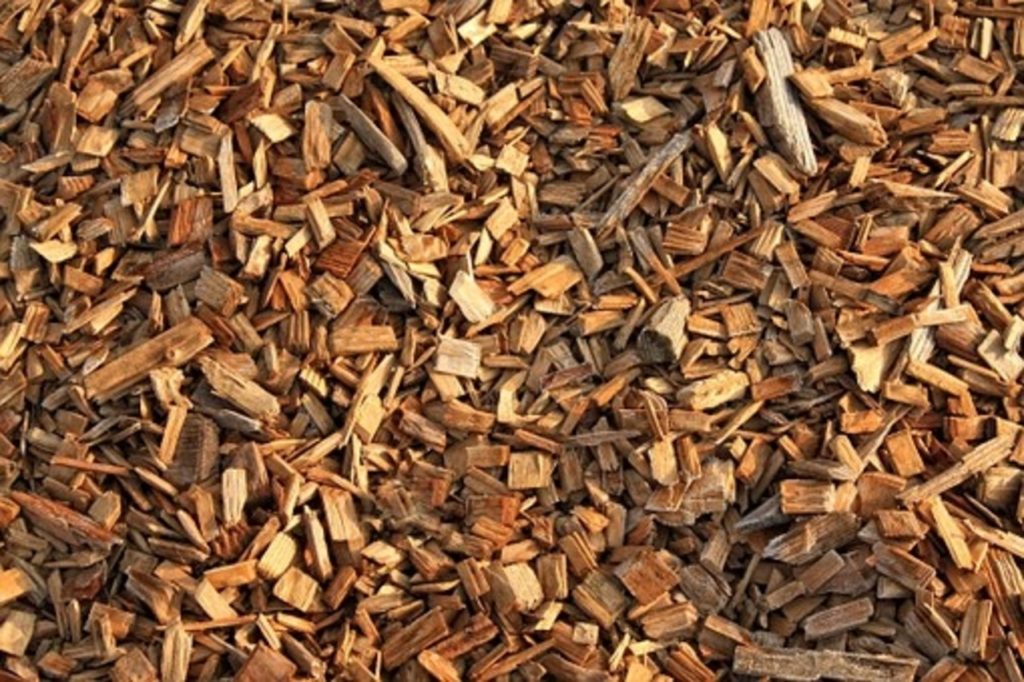A neighbor contacted me to ask how to maintain a backyard vegetable garden. She seemed to have it all figured out but hadn’t considered mulching. As a result, I had to teach her about mulching.
So, is it OK to put mulch in a vegetable garden? Yes! It’s OK to put mulch in a vegetable garden. Most people find it practical to mulch their gardens in spring. After a while, organic mulch turns into soil. Don’t put mulch on top of seedlings since they’ll have difficulty growing through it.
Expect an in-depth guide to mulching your vegetable garden in this post. It includes a general mulching technique and things to avoid while mulching. It also contains factors to consider while selecting mulch.
Also Check: Best Mulch For Vegetable Garden
Is It OK To Put Mulch in a Vegetable Garden?
Mulching is ideal for your garden because of the numerous advantages it provides. Mulching might help you save a lot of time and money. How so? It’ll save you weeding time because it reduces weeds.
Mulching also reduces your irrigation water expenditure. It does so by conserving moisture in the soil by preventing it from evaporating.
Even so, if you mulch with organic waste, you’ll save money on fertilizer.
Will Seeds Grow Through Mulch?
Seeds have difficulty growing through mulch for the same reason that weeds do. Seeds need sunlight and oxygen to germinate. As a result, mulching the seeds may cause the shoot to suffocate when it grows.
Furthermore, if you apply a thick layer of mulch, it’ll utterly stifle the plant in its growth. If the seeds germinate, the heavy mulch shatters them before reaching the surface. Rubber, stones, and bark make up heavy mulch.
When mulching seedlings around the base, you should leave a 2-3 inch gap between the plant stem and the mulch.
How Often Should I Mulch My Garden?
It all depends on the type of mulch you’re using and how quickly it decomposes—in most cases, applying mulch once a year is sufficient.
Keep in mind that excessive levels of mulch might obstruct air circulation. Also, it prevents water from penetrating the soil. As a result, you’ll need to be careful not to go over the 3-inch mulching material limit. There’s no need to get rid of old organic mulch before replacing it.
On the other hand, you must remove the inorganic mulch before its replacement. This is because the mulch takes a long time to decompose and doesn’t boost the soil’s nutritional content.
Does Mulch Turn into Soil?
Yes! Mulch turns into soil after a while. When mulch decomposes, it becomes soil’s organic matter. Soil contains organic materials as one of its major components.
Is Black Mulch Safe for Vegetable Gardens?
The mulch-making die is safe, but the source of the wood is a worry. If the wood has contaminants, it won’t be safe as mulch.
For instance, take a piece of wood salvaged from a paint or oil transport pallet. Utilizing this type of wood may pollute your soil, which destroys your vegetable garden. Lead contained in the paint, for example, hampers plant germination.
When Should I Mulch My Vegetable Garden?
In the spring, most people choose to mulch their gardens. This is because weeds begin to germinate at this time. Mulching limits weed germination by blocking sunlight from reaching the soil.
Mulching in the winter helps to reduce erratic temperature changes in the soil. As soil constantly expands and contracts due to temperature changes, the plants may get uprooted.
You can also mulch to protect the soil from overheating in the summer. This would reduce the rate at which the soil moisture is evaporating.
What Mulch Is Good for Vegetable Gardens?
Organic mulch is beneficial to your vegetable garden since it decomposes and provides nutrients to the soil.
It would help if you used mulches that are readily available and easy to decompose. Shredded leaves, for example, are inexpensive and straightforward to prepare.
To keep the soil warm during the planting season, use black paper mulch. However, when the sun is too intense in the summer, you must remove it to protect the soil from overheating.
Also, it would be best if you avoided stone and rubber mulches at all costs. The reason is they’ll reduce the fertile composition of the garden bed when you till them into the soil. Also, farming in stone-filled soil shall be problematic in the next season.
Similarly, avoid hardwood and wood chips since they take a long period to decompose. Due to this, they won’t contribute nutrients to your soil.
How Do You Mulch a Vegetable Garden?
Add a 2-3″ deep layer for the most remarkable results. Mulch less than three inches can’t suppress weed growth. Mulching deeper than three inches may prevent water from reaching the soil.
Avoid placing mulch around vegetable stems while mulching plants. Piling it at the base of plants might rot the stems or stifle the growth of seedlings. Keep it at least an inch away from the plant stems.
Natural, organic materials decompose considerably more quickly than heavier wood mulches. As a result, you’ve to reapply at least once or twice a year.
Is Sugar Cane Mulch Good for Veggie Gardens?
Sugar cane mulch is ideal for veggie gardens since it decomposes quickly. People use dried sugar cane leaves and tops to make the mulch and sell it in bales. It’s less expensive, easier to handle, and more easily accessible than other mulches.
When it decomposes, it’ll add nutrients to the soil. You’ll need to replenish it frequently due to its rapid decomposition rate.
Sugar cane mulch is excellent for holding water into the soil.
Is It OK To Put Cedar Mulch in a Vegetable Garden?
Cedar mulch is not OK for your vegetable garden. Why? Cedar mulch repels all bugs. This includes insects like butterflies, which are essential for pollination. As a result, you shouldn’t use it near plants that rely on insect pollination for reproduction.
During its decay, cedar mulch pulls nitrogen from the soil. This deprives your plants of nitrogen which is essential for plant growth. The deeper the mulch penetrates the ground, the more nitrogen it’ll be able to drain. As a result, it’s best used to mulch more permanent plants that don’t require frequent tilling.
In addition, due to cedar’s high water retention capacity, it may make your garden waterlogged. Too much water causes vegetable roots to rot.
What Is the Purpose of Mulching Veggies?
- Getting Rid of Weeds
Instead of toxifying your veggies with herbicides, you should do mulching. Mulching has proven to be a very effective and natural method of weed control. Mulch creates a thick, deep blanket that filters sunlight; this makes it harder for weed development.
- Enrich the Soil with Nutrients
Organic mulch decomposes slowly over time, adding nutrients to the soil while it does so. The soil’s fertility improves by the addition of these nutrients.
Noticeably, veggies’ growth and the soil microbes that aerate the ground require nutrient-rich soil.
- Retain Moisture in the Soil
In summer, mulching helps to decrease water due to evaporation. Retaining soil moisture benefits your vegetables. Also, it’ll help you save on time because you won’t have to water as frequently.
- Regulate Soil Temperature
Mulch works the same way that the air conditioner regulates your home’s temperature. It keeps the soil cool during hot summer days and warm when temperatures drop.
Mulch reduces the intensity of temperature variations. This allows the plants to maintain optimal growing conditions.
- Prevent Soil Erosion
Strong winds or rainfall can erode exposed soil. Erosion can be particularly harmful to your landscape on slopes and hills. Mulch creates a heavy blanket that protects the soil from erosion and surface runoff.
- Keeps Vegetable Crops Clean and Reduces Exposure to Disease
Mulch keeps dirt from splashing onto vegetables. During rain or irrigation, many soil-borne illnesses spread to plants through splashing.
Should You Put Mulch Around Tomato Plants?
You should put mulch around the tomato plant at the time of fruition. Mulch prevents tomatoes from rotting due to lying on the bare ground.
Other benefits of mulching tomato plants include:
- Helping in water retention: When the layer of mulch traps water underneath, it takes longer to evaporate due to sun heat. During hot, dry weather, this decreases the need for frequent watering.
- Preventing soil-borne illness from spreading to tomato plants: When you water your garden, a layer of mulch keeps the soil from splashing up onto your tomato plants.
- Helping to keep soil from becoming compacted: Because tomato plants prefer loose soil, this provides the best conditions for root penetration.
- Keeping light away from the weeds: This prevents the weeds from germinating due to a lack of light.
What Are the Factors To Consider While Choosing Mulch For Veggies?
- Intended Use
If you’re mulching in the summer, use a mulch with a low heat retention capacity. In the spring, you’ll need mulch such as black paper, to warm up your soil.
However, compost is a horrible choice for weed suppression since it encourages weed growth. Mulches like straw, on the other hand, suffice.
- Availability
It would be best to go for mulches readily available in your area. Leaves and compost, for example, are typical in most regions.
- Cost
It’ll help if you choose a mulch that’s pocket-friendly yet effective.
- Ability to Decompose
The ideal mulches for your vegetable garden are organic. They’ll add nutritious value to the soil as they degrade. Since wood-based mulches take too long to decompose, they should be the last resort.
Because inorganic mulches don’t decay, you’ll incur an extra cost while removing them. Also, you would need to buy more fertilizer to supplement the soil’s nutrients.
Can You Use Grass Clippings As Mulch in a Vegetable Garden?
You can use grass clippings as mulch in your vegetable garden. Grass cuttings suppress weeds, retain moisture, and decompose over time to replenish the soil.
Grass clipping mulch is a supplemental fertilizer. This is because it contains so much nitrogen and potassium.
It’s worth noting that not all grass cuttings are beneficial. Seed heads on grass germinate as soon as they fall to the ground. As a result, you should avoid this variety of grass at all costs.
FAQ
Will Mulch Attract Bugs?
Mulch doesn’t attract bugs, but it does provide them with a haven. If you search beneath any mulch, you’ll undoubtedly find a variety of insects. Among the most frequent are centipedes, ants, and spiders.
These species aren’t always dangerous, though. They help to break down the mulch. So, they usually don’t cause any issues.
However, other mulches, such as cedar mulch, repel insects.
What is the best mulch for tomatoes and peppers?
For tomato and pepper plants, grass clippings are one of the most popular mulch options.
Because of their modest size, you can easily disseminate it between smaller garden plants and confined areas.
The nutrients and structure of the soil will be improved when grass clippings decompose. Nitrogen, potassium, and phosphorus are the main components of clipping.
Can I Use Bark Mulch on My Vegetable Garden?
It would be best not to use bark mulch in a vegetable garden. The mulch takes too long to disintegrate, which is the main reason. This means you’ll have to remove the mulch before the next planting season.
Instead, use mulch like straw, which decomposes quickly and blends in seamlessly with the soil.
Conclusion
Most people mulch their garden in spring for weed suppression. Although, some don’t know that mulching in summer would be crucial. Mulching during summer retains the moisture in the soil and helps keep the soil cool.
Also, it’s essential to know the source of wood used to prepare your mulch. This is because the manufacturers use recycled timbers to prepare mulches.
If the wood still contains pollutants from its previous use, this chemical leaks into the soil after a while. This may lead to the death of the soil’s microorganisms and even your veggies.


